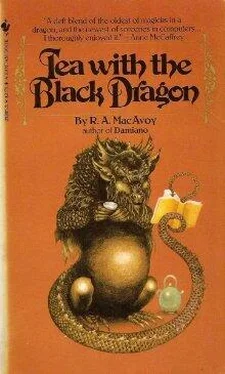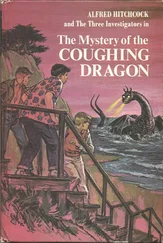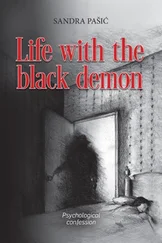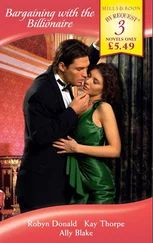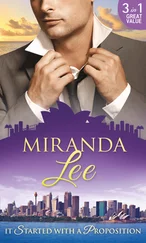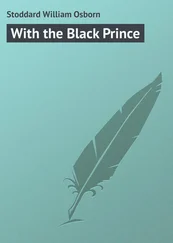“Have you ever been involved in such a project Fred?”
“No, not me.” He shook his head, releasing his moustache from its duress. “That’s big league stuff. They don’t look for a hacker with his head full of new ideas and his heart among the hobbyists.”
Frisch frowned as he spoke, but his eyes remained vague, reflecting the sky through the window: detached, speculative, feeling his grievances against the world only superficially. He was very young. Mayland Long found him interesting. His own brown eyes, watching Frisch, were anything but vague.
“But Peccolo has done security. He contracted for one while I was at Stanford. I remember. It was for North Bay Savings.”
Long stirred in his chair. “While you were at Stanford. That must be—oh—two years ago, then? You’ve not done badly, being only two years out of school. This shop filled with expensive toys, contacts in all fields of electronics…”
Frisch linked his hands together behind his head and cracked all his knuckles at once, exhaling loudly through his moustache as he did so. “Well, I guess not. This shop? Yeah, it’s something.”
The young man got up and regarded the row of screens before him. Some of them were dusty. Some dotted with fingerprints. He turned to the wall of esoteric journals, and the counter filled with boxes of components, spools of bright ribbon cable, and small chips laid like dead roaches on their backs, brass legs sparkling under glass. “Seems I never sell anything, though. I just have interesting conversations.”
Long laughed at Fred Frisch and then, unexpectedly, he bowed to him, hands together across his middle, thumbs lightly touching. “May you have many more such,” he said, his accent shifting slightly from Oxford to the East. “And may they be of equal value to the people with which you have them.”
He took his leave. As the door closed behind him, Fred Frisch leaned over to the console and hit the return key. The program resumed, the glider touched the small pulsing colony, and one particular dot of light went out.
No one saw who cared.
There were clouds toward the north, over the city. These darkened the rear-view mirror, while Mayland Long drove into the late afternoon sun. They reminded him that autumn was approaching: autumn and the rain.
He took a deep breath and let it out slowly. His left arm lay along the sill of the open window. His bare hand sprawled out over the dark green enamel of the car door: too dark for the sun to burn.
Fire was Mr. Long’s chosen element; he had no sympathy with the rain. Yet he knew water was preordained to win, in the end. In mans end, at least. No vault or sepulcher could keep out the damp forever, and even ashes dissolved. But if he stared at the mirror with a bleak eye, driving south on Alma Street in the dusty shade of trees, it was not such philosophical speculation which disturbed him.
He parked out of the line of sight of anyone coming from or going toward RasTech, and strolled down the street. Mathilda Avenue was wide and choked with traffic. The earth around it—like the entire Valley—was flat and dry, only partially won from desert. In Long’s eyes it was an unworthy victory, too. The cheap concrete architecture depressed him; it seemed to spring out of nowhere, like the sudden idea of some not-very-imaginative child: all boxes and cylinders, not even colored with crayon.
Each bare-fronted building had its tiny, begrudged rectangle of green and a huge parking lot. The only other shrubbery on the street consisted of the occasional ivy bed, and a few sapling olive trees which struggled for life at the corner, where the words Sunnyvale Industrial Park were engraved on a sign cut from an immense slice out of a redwood tree. RasTech itself was featureless as a shoebox, except for heavy concrete buttresses along the side of each window and which made a sort of porch before the front entrance.
This landscape offered very little concealment to a man seeking concealment—especially a man as distinctive in appearance as Mayland Long. Nonetheless he concealed himself,- standing motionless in the afternoon shadows cast by the overhang of the entrance. Behind him rose the slab wall of the building. To his left was the lintel of the doorway. In front of him, further obscuring him from sight, stood a lattice overwhelmed by mounds of Algerian ivy. His clothes were dark; so was he. The shadow slowly grew.
People issued from the building—it was nearly five o’clock. RasTech employees accounted for only a fraction of the workers who dashed out or paused on the walk before the door, expanding in the open air for a moment before confronting the traffic. Long searched them all from the darkness; his eyes were very good.
He waited for Rasmussen, knowing he might well have a long wait. He wanted information from the president of RasTech, the last known employer of Elizabeth Macnamara. He did not think he would obtain that information by asking the man. He planned to follow him.
Mayland Long was tired. Save for those few hours in the chair early in the morning, he had been awake for three days. He was also hungry, having neglected to eat since the previous day’s lunch with Martha Macnamara.
He had no patience for the way his body clamored to be fed, two or even three times a day.
Sleep, however, he took seriously. He liked to sleep, and he would have to sleep tonight, or his mind would begin to fail. He told himself as much and continued his watch.
Three women came out of the door, dressed in tight trousers, talking in Spanish. He followed their conversation with half an ear. A man came out alone: too thin to be Rasmussen. Then a young woman appeared. She let the door slam behind her and stood hesitant on the stoop.
She was tall and blonde, dressed in tailored navy blue gabardine. She turned her head left and right, as though she could not remember where she had parked her car. Mayland Long took a step out of the shadow and froze.
Beneath the smooth grace of hair, above the strong jawline, she had the blue eyes of her mother. She was taller, yes. Larger of bone. Most probably Martha Macnamara had never been this beautiful.
Nor, probably, had she ever been so quietly terrified. The face Mayland Long saw in profile was white and sweating, concealing a sick fear. The perfect lips trembled. Seeing this in a reflection of Martha, whose listening had pulled from him more than he had believed himself to know, who had said, “This is a rose” and thereby cracked all the barriers in his life, his abiding anger flared. One hand clutched at the redwood grating before him. Wood crumbled.
She headed for the street, her foot stumbling once on the concrete stair. She wound through the crowded parking lot, among cars that honked and bulled their way toward the exits. She climbed the grass edgeway and was at the street.
Mayland Long followed. He abandoned the shadow, fading unnoticed through the crowd of loungers at the door. He pursued Liz Macnamara at a distance. She stopped by a white Mercedes and stepped out to the driver’s side. Standing a distance away, he smiled, imagining Martha behind the wheel of that car. Then he turned back the way he had come.
She bolted the door behind her and leaned against it. Immediately the shaking grew worse. She bit her lip until she had her body in control again.
Hearing the sound of the fountain in the courtyard, she strode over to the living room window. With repeated thumps of the heel of her hand, she forced the sash open.
Cool air stole into the room, smelling of water. The pampered grass of the central court waved silver and green. There were gulls in the fountain; she heard the smack of their wings.
Liz had heard a story about geese being used to keep watch in some country; warning of invaders. Where was that—Greece? Would these gulls cry out if one of the condominiums were invaded? She peered down at the sidewalk that wound through the grass below, and at the shingles of the wall. Finally she turned away from the window.
Читать дальше
